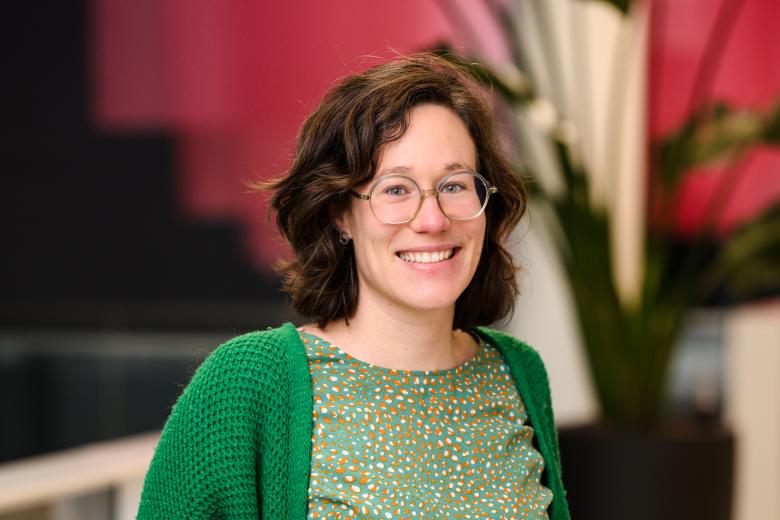Michelle Moerel nominated for New Scientist Science Talent 2017
Maastricht University is proud of the nomination of Dr. Michelle Moerel, assistant professor and researcher at the Maastricht Centre for Systems Biology (MaCSBio), for New Scientist Talent 2017. She is one of 25 nominees. In her research Moerel studies the human brain, more specifically the way people hear. For that purpose she invites test persons to lie in an MRI scanner and listen to sounds. That allows her to measure the brain activity that is caused by the sounds. She analyses these images and deduces how the brains process the sounds.
You can vote for Michelle Moerel at the New Scientist website from 23 May through 5 June.
Future
Michelle Moerel on her research: “In the future, by applying systems biology I hope to provide improved scientific insight in both healthy and impaired hearing. My ultimate goal is to contribute to the recovery of damaged hearing. Hearing problems, such as hearing in a noisy environment or hearing a phantom sound (tinnitus), often occur."
"The ageing population and the development of hearing damage caused by loud music predict a rise in hearing problems in the upcoming years. Damaged hearing often has far-reaching social and psychological consequences. For people with hearing problems my results may one day be very relevant.”
New Scientist Science Talent 2017
The 18 universities in The Netherlands and Flanders, including their associated medical centres, were invited to each nominate three scientists. The editors of New Scientist selected 25 nominees, one of which is Michelle Moerel.
The New Scientist Science Talent 2017 will be disclosed on 22 June in the Kleine Komedie in Amsterdam. The voice of the public and the judgement of the jury will be converted into numbers of points. These numbers each count for half in determining the winner.
MaCSBio
Michelle Moerel works at MaCSBio, the institute for systems biology at Maastricht University. This field of study uses mathematics and computer models to understand complex biological processes. The whole grail of systems biology is to build a virtual human being, which will make it possible to better predict and treat diseases and disorders. MaCSBio is dedicated to educating future talents. Therefore, the institute offers a two-year master’s programme in Systems Biology. MaCSBio belongs to the STEM cluster of the Faculty of Humanities and Sciences, Faculty of Psychology and Neuroscience and the Faculty of Health, Medicine and Life Sciences.
Also read
-
Aurélie Carlier receives Athena Award
Aurélie Carlier receives the Athena Award. This award is for exceptional female researchers who serve as role models through their successful scientific careers.
-
Despite a less tight labour market no end to shortages in healthcare, education, and tech
Interesting new findings in the report 'The Labour Market by Education and Occupation until 2030' from the Research Centre for Education and the Labour Market (ROA) at Maastricht University.
-
Protecting children’s rights in non-existent states
What happens to the universal rights of a child when their home is a “de-facto” state—a political entity that has all the hallmarks of nationhood, yet is not officially recognised? And who bears legal and moral responsibility for these children when war breaks out? These issues lie at the heart of the...